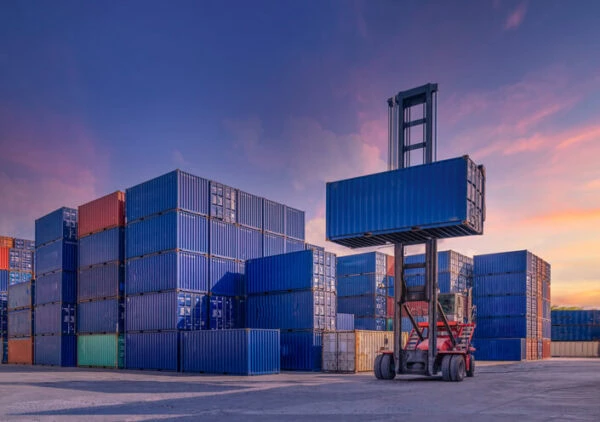Global Ties, Mutual Gains: The Modern Landscape of Supply Chain Partnerships
Supply chain partnerships link businesses together as one and can play a pivotal role in a company’s success. How well a company performs often lies in the strength of its connections.

There is an increased market focus on supply chain partnerships. These wide-ranging relationships encompass everything from sourcing materials to delivering final products.
The Renewed Focus on Supply Chains
Several factors have driven businesses to pay more attention to their supply chain partners. For example, with the rise of global commerce, companies are collaborating across borders more than ever. This global approach provides ample opportunities while also presenting unique challenges. A hiccup in one region, whether a logistical issue or geopolitical tension, can reverberate worldwide.
Companies with established and resilient supply chain relationships are better positioned to navigate uncertain times and should work to nurture these partnerships.
Benefits of Collaborative Supply Chain Partnerships
Ultimately, collaborating closely with supply chain partners offers a range of benefits such as spurring new kinds of innovation. A partner, for example, might possess valuable insights into a local market or introduce cutting-edge technology, leading to shared growth and development.
Reported McKinsey, closer relationships between buyers and suppliers can unlock significant value and bolster supply chain resilience. Organizations are realizing a sole focus on product and service pricing is limiting; collaborative efforts can lead to innovative products, optimized supply-chain processes, and improved forecasting and capacity management. However, despite the potential benefits, many struggle to integrate supplier collaboration due to challenges like shifting from transactional mindsets, quantifying collaboration value, and needing long-term commitment from leadership.
Risk managers are tasked with many supply chain responsibilities, like consistently reviewing and mapping out dependencies, considering geopolitical factors, shortening supply chains, and fostering a culture of risk awareness.
Technology’s Role in Supply Chain Partnerships
Beyond transactional relationships, businesses are fostering collaborative dialogues, sharing data, and jointly crafting strategies to optimize the supply chain. Regular reviews, audits, and feedback sessions have become common.
Forward thinking companies are leveraging advanced digital platforms and tools for real-time communication with supply chain partners. This ensures transparency, quick decision-making, and a seamless flow of information. Tools like blockchain and AI-powered analytics provide deeper insights into supply chain processes, allowing for areas of improvement and innovation.
How to Manage Supply Chain Risks:
Adapting to a fast-paced and ever-changing business environment is vital. Building strong supply chain partnerships lets companies respond to market changes, minimize risks, and spot new opportunities. A close relationship ensures companies stay updated with technological shifts, benefiting from shared resources.
Here are a few supply chain considerations via SAI360:
- Location: Geopolitical risks
- Communication: Partner experiences with vendors
- Capacity: Supplier capabilities and history
- Review the supply chain: Change based on risks
- Tightening supply chains: Risks of lengthy international chains
- On-shoring: Suppliers closer or within borders
- Regular risk reviews: Monitor for new risks
Why are Companies Prioritizing Supply Chain Partners?
Today’s volatile global market, affected by health and climate change disruptions, makes resilient and adaptable supply chains crucial.
By collaborating with supply chain partners, companies prepare for disruptions, reduce risks, and maintain continuity. This proactive approach identifies bottlenecks, ensures timely deliveries, and keeps customer satisfaction high.
Additionally, ethical and sustainable business practices are in focus. By closely monitoring supply chain partners, companies can uphold ethical sourcing, environmental sustainability, and fair labor practices. Aligning with partners who prioritize these values enhances a company’s reputation and credibility.
Adopting a proactive approach is essential for cultivating meaningful supply chain relationships. This not only safeguards daily operations but also sets the stage for future growth.
Learn More About SAI360’s October 2023 Product Release
SAI360, a leading supplier of GRC technology alongside learning solutions, just unveiled its 2023 October product launch. A key feature of this new product release is SAI360’s enhanced Vendor Risk Management module. Upgrades ensure total transparency in the supply chain and foster stronger vendor partnerships. We’ve introduced comprehensive assessments of outsourced risks, deeper insights into vendor financial stability, and customized tools like vendor questionnaires and product/service importance evaluations. Additionally, our system efficiently identifies extended-chain risks and maintains a flexible log of occasional findings.
Read more about the updates to the Vendor Risk Management module, as well as other highlights from the 2023 October Launch.



